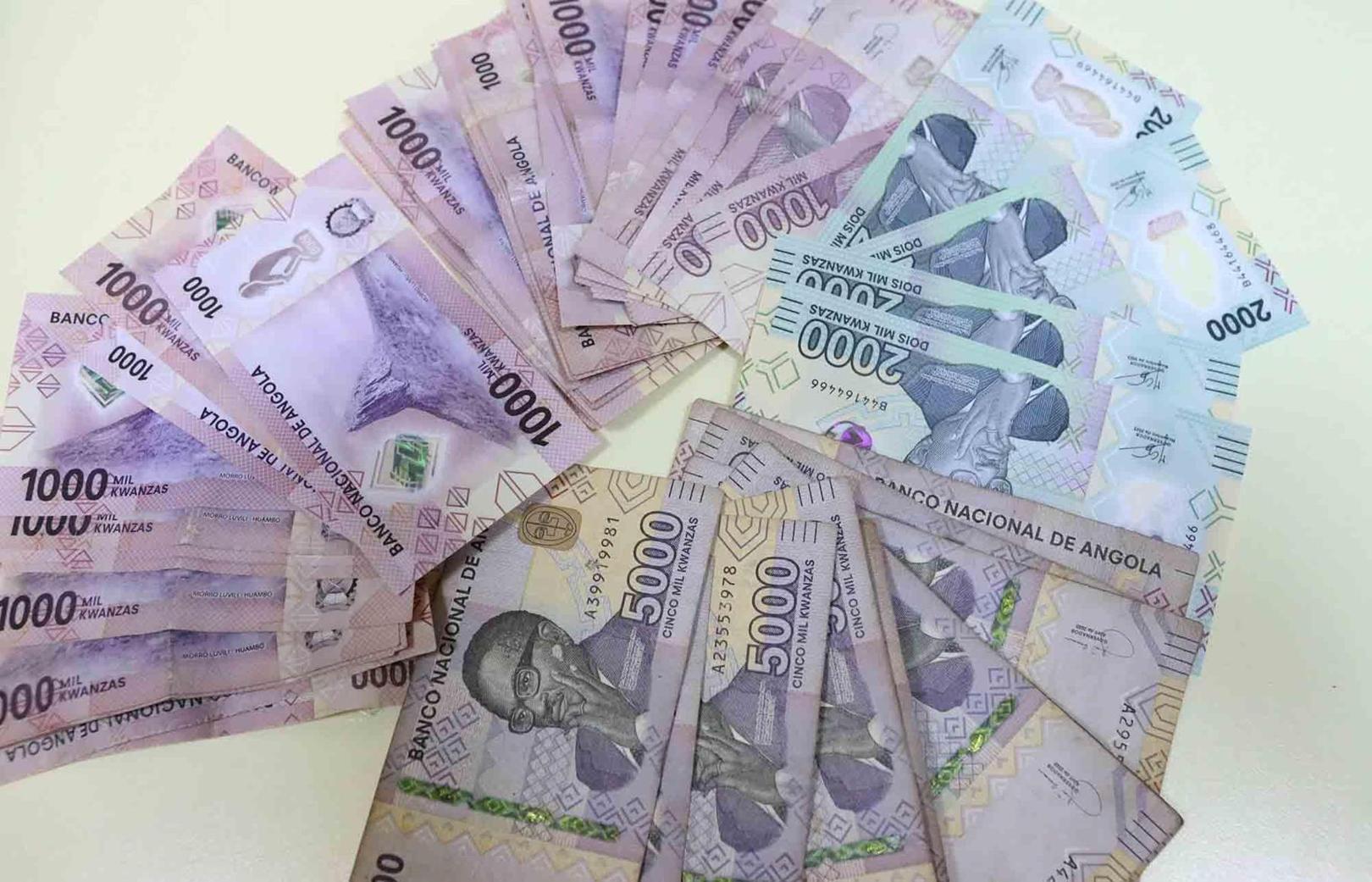Africa-Press – Angola. The appreciation of the euro against the dollar pushed the European currency to its highest value ever against the kwanza, reaching 1,080 Kz at the end of the first half of the year. As for the dollar, the kwanza has remained static for six months, even though commercial banks have less access to foreign currency.
Summer in Europe increases demand for foreign currency and bank transfers there are already starting to be delayed.
The kwanza exchange rate against the dollar has been stagnant at around 912 Kz per USD since December last year, but against the euro it has already depreciated by 13% in the first half of the year alone, according to calculations by Expansão based on average exchange rates from the National Bank of Angola (BNA). This variation is the result of the depreciation of the US currency against the euro on international markets.
The one euro note went from 940 Kz on 1 January to 1,080 Kz on the last day of June, which explains the 13% drop in the first six months of the year. This exchange rate of the euro against the kwanza is also the highest on record.
The movement of the euro in the Angolan market is mainly due to the latest events related to North American economic policy and its global effects, which have caused the euro to appreciate in relation to the national currency, since the exchange rate of the European currency in Angola is defined by its relationship with the dollar.
In foreign markets, the eurozone’s single currency has not yet recorded a single month of negative balance against the dollar in 2025 and has already appreciated 13.4% against the US dollar in the first half of the year, with practically the same effect on the kwanza. By appreciating for six consecutive months against the greenback, the euro has thus established the longest series of monthly gains since 2017.
In the case of Angola, the correlation between the value of the dollar on the official market and the exchange rate of the euro against the kwanza is also known: movements towards the devaluation of the US currency against the European currency are usually accompanied, internally, by the appreciation of the euro against the kwanza.
As for the dollar’s exchange rate against the kwanza, the national currency has been stagnant for six months, since reaching the barrier of 912.0 Kz per dollar, since the beginning of December last year it has appreciated by just 0.03% against the US currency, going from 912.3 Kz to the current 912.0 Kz.
According to experts, this scenario clearly shows that the BNA is intervening in the foreign exchange market, reviving a kind of fixed exchange rate regime, since in a free market this stagnation of the exchange rate is not seen as normal in the foreign exchange market. Even though the BNA governor has stressed over the months that the central bank has not interfered in this matter, several banking sources contradict this, saying that the banking supervisor “has an invisible hand” that ends up pressuring banks not to make offers that it considers “speculative”, which has prevented the depreciation of the national currency.
This is why the IMF states that Angola does not have a free exchange rate system, but rather a crawling peg (financial jargon for an exchange rate regime with controlled and gradual adjustments).
Transfers are already delayed
With summer in Europe, demand for foreign currency at commercial banks has been increasing, as many families take advantage of the season to spend their holidays abroad and, as a result, transfers have also been delayed again.
According to Expansão, there are already commercial banks where money transfers abroad take more than a month, sometimes two months. But this depends on the bank and the relationship the customer has with the bank. “I made two transfers at one of the big banks last month and they took between 8 and 15 days,” said a private individual with a trip to Europe booked.
As banks are not always able to meet customers’ needs in a timely manner, the informal market continues to be an alternative for many families, as it offers immediate availability: either cash in hand or transfer to a bank account abroad. This Wednesday, while a 100 euro note was being sold for an average of 111,680 Kz in commercial banks (where it is rare to buy physical notes), in the kinguilas it was being sold for 127,000 Kz, an increase of 15,320 Kz.
For More News And Analysis About Angola Follow Africa-Press






